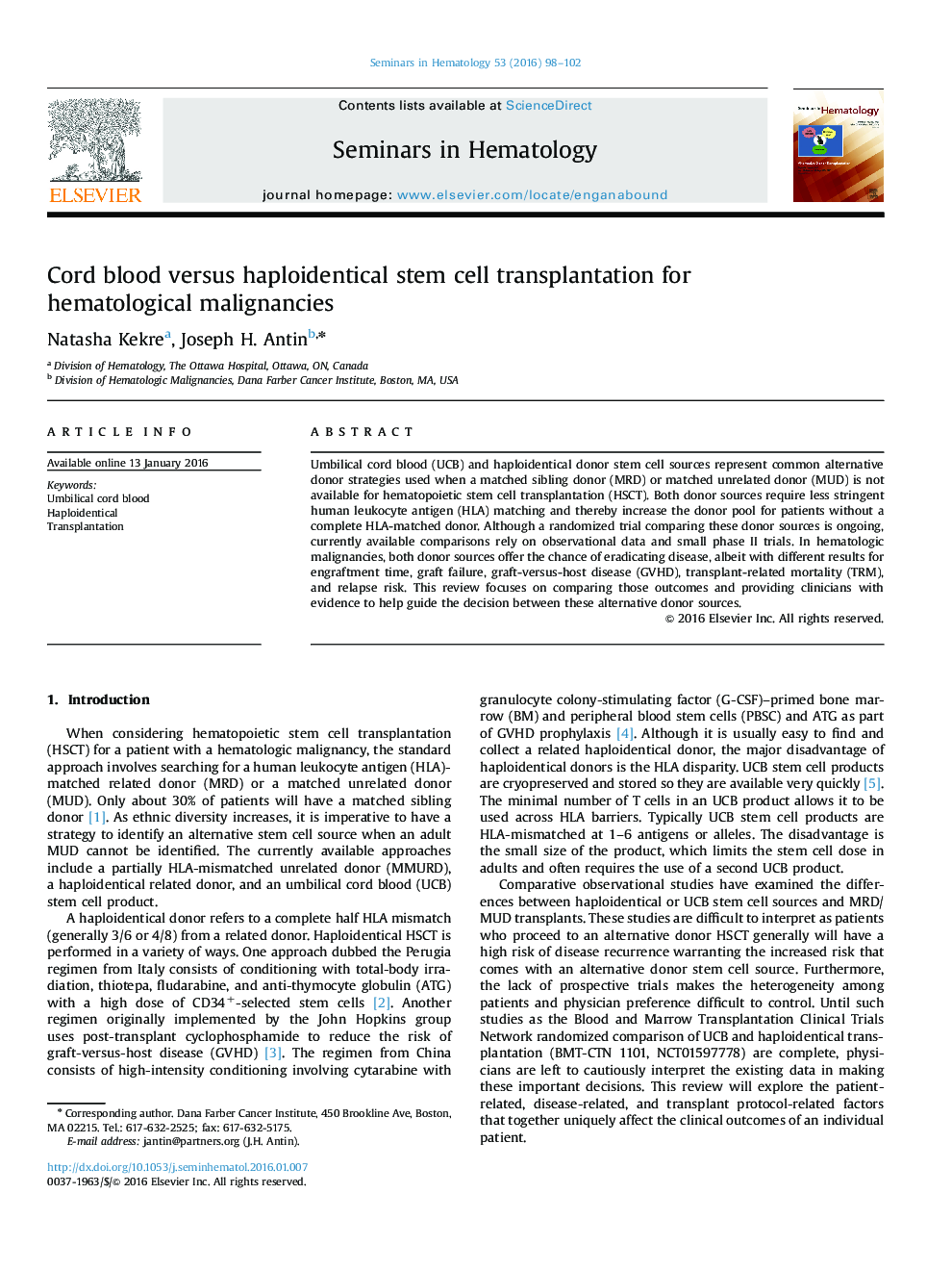| Article ID | Journal | Published Year | Pages | File Type |
|---|---|---|---|---|
| 3333384 | Seminars in Hematology | 2016 | 5 Pages |
Umbilical cord blood (UCB) and haploidentical donor stem cell sources represent common alternative donor strategies used when a matched sibling donor (MRD) or matched unrelated donor (MUD) is not available for hematopoietic stem cell transplantation (HSCT). Both donor sources require less stringent human leukocyte antigen (HLA) matching and thereby increase the donor pool for patients without a complete HLA-matched donor. Although a randomized trial comparing these donor sources is ongoing, currently available comparisons rely on observational data and small phase II trials. In hematologic malignancies, both donor sources offer the chance of eradicating disease, albeit with different results for engraftment time, graft failure, graft-versus-host disease (GVHD), transplant-related mortality (TRM), and relapse risk. This review focuses on comparing those outcomes and providing clinicians with evidence to help guide the decision between these alternative donor sources.
